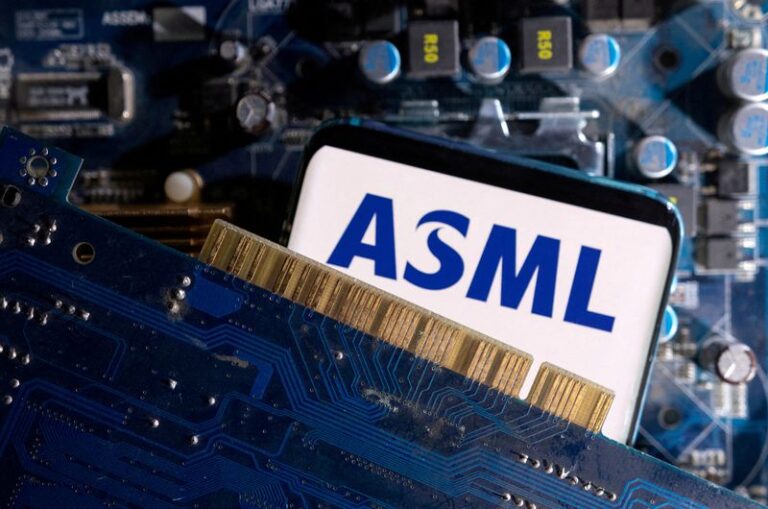Arshiya Bajwa
(Reuters) – U.S. semiconductor stocks fell more than 4 percent on Wednesday after Republican presidential candidate Donald Trump signaled his reluctance to defend Taiwan and after reports the United States was considering tightening export controls on advanced semiconductor technology to China.
The United States has told its allies that it is considering imposing the toughest trade restrictions if companies continue to give China access to advanced semiconductor technology, Bloomberg News reported on Tuesday.
U.S.-listed shares of Dutch semiconductor equipment maker ASML Holdings AG fell about 9 percent following the report, even though the company reported better-than-expected second-quarter profit.
Shares in AI giant Nvidia fell about 4%. Smaller rival AMD fell 6.3%, while Qualcomm, Micron Technology, Broadcom and Arm Holdings all fell more than 5%.
Intel bucked the trend, rising 5%, as analysts pointed to the company’s efforts to build factories in the U.S. Smaller contract manufacturer GlobalFoundries also jumped more than 11%.
The Biden administration has moved aggressively in recent months to restrict China’s access to cutting-edge semiconductor technology, including sweeping regulations issued in October to restrict exports of AI processors designed by companies such as Nvidia.
The restrictions have hurt sales to China for U.S. chipmakers. Nvidia’s revenue from China accounted for about 18% of its total in the quarter ended April 28, down from 66% in the same period a year ago.
Former U.S. President Donald Trump told Bloomberg Businessweek that Taiwan should pay more for the United States’ defense costs, sending TSMC’s U.S.-listed shares falling 6%.
Taiwan Semiconductor Manufacturing Co. is the world’s largest contract chipmaker and a leading supplier of advanced processors that power everything from AI applications to fighter jets.
Taiwan is home to some of the world’s largest and smallest chipmakers and plays a major role in the global semiconductor supply chain, leading analysts to warn that any conflict over Taiwan could disrupt the global economy.
“This will undoubtedly cause significant disruption in the short term, but at the same time, as new facilities open in Europe, the US and elsewhere, the industry’s reliance on Asia could start to reduce over the next few years,” said Darren Nathan, head of equity research at Hargreaves Lansdown.
Semiconductor stocks have rallied this year as investors bet on generative AI and the hardware that powers it. The Philadelphia Semiconductor Index is up 39% in 2024, outpacing the 18.8% gain in the benchmark S&P 500 index.
Potential Beneficiaries of Intel
Intel has been investing heavily to regain its lost manufacturing advantage since falling behind TSMC. The company is also one of the biggest beneficiaries of the U.S. Semiconductor Act, which got it $19.5 billion in federal grants and loans, and hopes to secure another $25 billion in tax breaks.
“Intel could benefit as it seeks to win business from other chip designers for its own foundries, but the economic benefits from that part of its business are yet to be proven,” Nathan said.
(Reporting by Arshiya Bajwa in Bengaluru; Editing by Sreeraj Kaluvilla)

